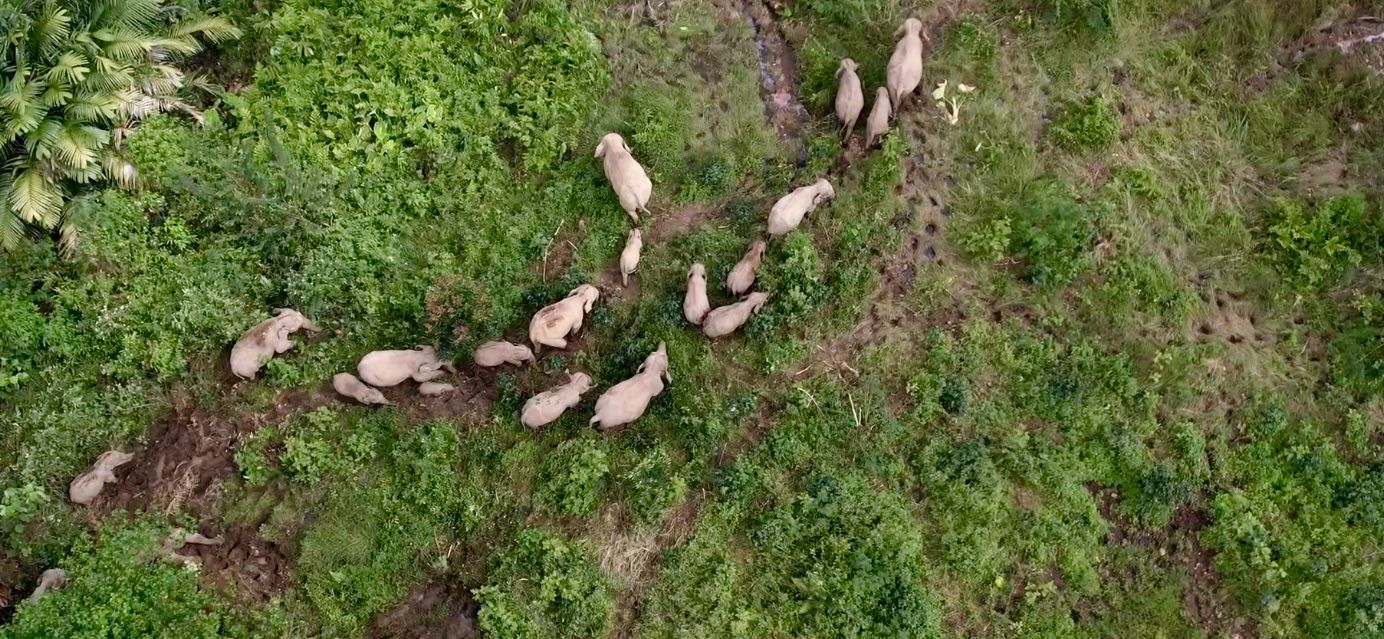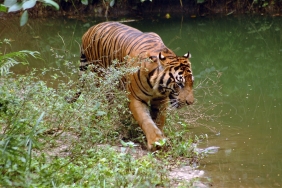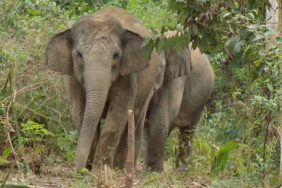WWF CALLS FOR SERIOUS GOVERNMENT ATTENTION TO SUMATRAN ELEPHANT PROTECTION
Banda Aceh - WWF-Indonesia deplores the continuing death of Sumatran elephants (Elephas maximus sumatrensis). Last Monday (13/4), an elephant carcass was found in a terrible condition in Kareung Hampa Village, Lam Balek Sub-district, West Aceh District, about 150 meters from PT Agro Sinergi Nusantara (ASN) Palm Oil Plantation area. The condition of the elephant carcass was in a state of loose trunk, missing ivory and estimated to have died since one week earlier.
This incident adds to the long list of deaths of Sumatran elephants. Especially in Aceh, WWF-Indonesia records show that 36 individuals have been found dead since 2012. The majority of elephant deaths were caused by poisoning, while some cases were caused by stun guns or snares in oil palm plantations. With this case, the number of elephant deaths throughout Sumatra Island in the last three years is getting closer to 200 individuals or more than 10% of the total population of Sumatran elephants in the wild.
"If the law is not strictly enforced to prevent killing and poaching, the Sumatran Elephant could be extinct in less than 10 years," said Sunarto Wildlife Species WWF-Indonesia. "We urge and are ready to support the law enforcement team to immediately reveal this case so that the parties involved can be held accountable for their actions," Sunarto continued. The population of Sumatran elephants is declining drastically. According to the Indonesian Elephant Forum in 2014, the elephant population number only remained around 1700 individuals.
Elephant death cases are inseparable from human-animal conflicts (Human-Wildlife Conflict) which are rooted in changes in the function of elephant habitat areas such as conversion of areas into oil palm plantations. In this regard, a comprehensive system improvement and reorganization of plantation zoning is needed so that the existence of oil palm plantations does not threaten the habitat of protected wildlife including Sumatran elephants. "We ask for serious attention from the Ministry of Agriculture to ensure that plantation businesses fulfill their obligations in helping to protect elephants and other wildlife protected by law. If violations are found, action should be taken in accordance with applicable laws and regulations," said Irwan Gunawan, Strategy Leader-Market Transformation WWF-Indonesia.
WWF-Indonesia has previously encouraged law enforcement efforts for wildlife crime in Aceh through meetings involving the Police, Aceh Natural Resources Conservation Center (BKSDA) and the Attorney General's Office. The death of this elephant should be used as a momentum by the Aceh Government and the Aceh Parliament (DPRA) to issue and ratify the Wildlife Protection Qanun. This Qanun is expected to curb the rate of wildlife deaths in Aceh, especially Sumatran elephants, which are currently categorized as critical in the red list of The International Union for Conservation of Nature (IUCN).
For more information, please contact:
- Sunarto, Wildlife Specialist, WWF-Indonesia (sunarto@wwf.or.id, +628119950521)
- Chik Rini, Communication Officer, WWF-Indonesia Banda Aceh Office (crini@wwf.or.id, +628126972392)
Editor's Note:
- Another case of Sumatran elephant death currently under investigation by BBKSDA Riau is a case that occurred in June 2014 in a RAPP concession that overlaps with Tesso Nilo National Park. According to the results of crime scene investigation conducted by BBKSDA, police and WWF-Indonesia, there are strong indications of firearm use. There were four holes in the skull that were strongly suspected to be the result of firearm shots. All four holes are located on the left side of the head, one on the temple, three in the cheek cavity with close proximity. The elephant's tusks were allegedly taken by force using a sharp object. Pieces of the trunk were also seen dumped not far from the elephant carcass.
- The perpetrators of protected wildlife poaching can be charged with Law No. 5 of 1990 concerning the Conservation of Biological Natural Resources, which carries a sentence of 5 years in prison and or a fine of Rp. 200 million.





